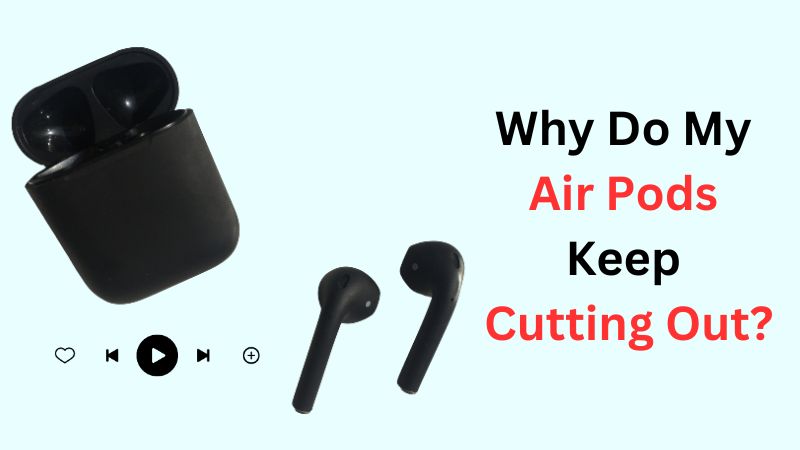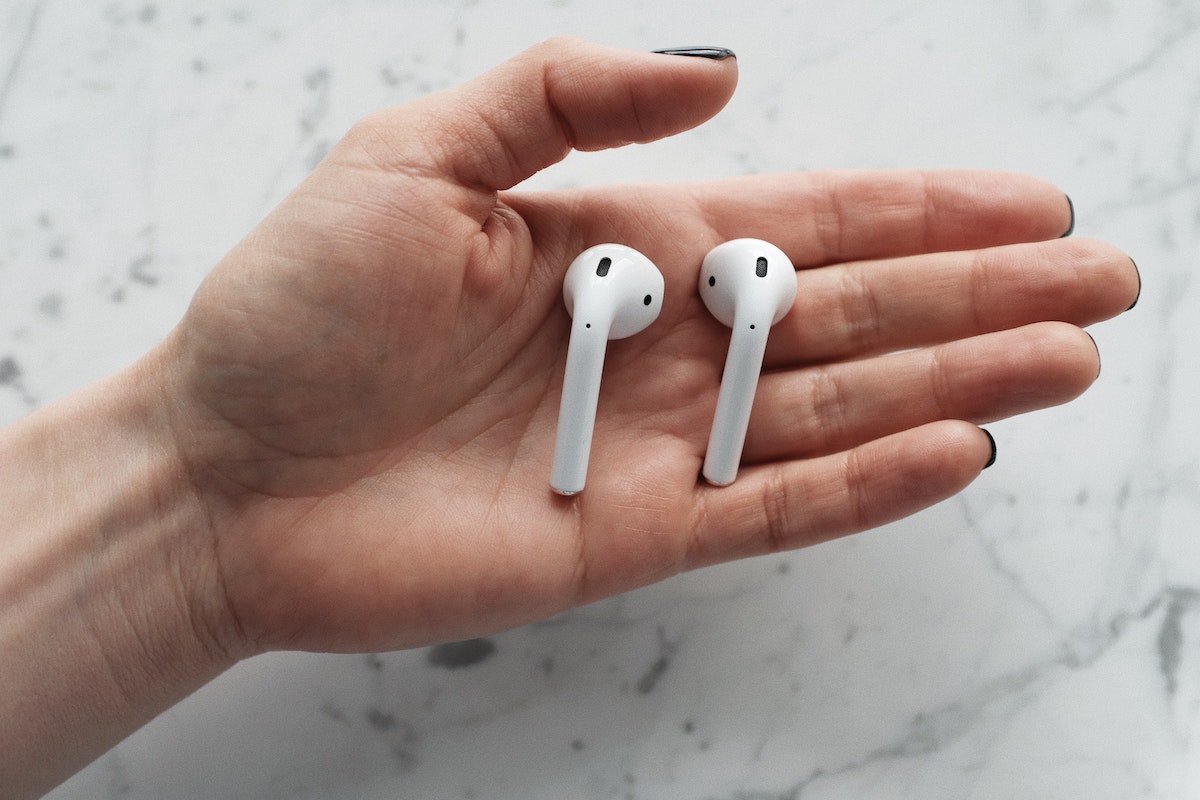Tired of your AirPods leaking sound? Not to worry, we have the solution for you! If you’ve been frustrated by the audio leaking out of your AirPods and into the surrounding environment, you’ll be relieved to know that there are simple steps you can take to prevent this from happening. In this article, we will walk you through exactly how to stop AirPods from leaking sound, ensuring a more private and immersive listening experience. So, let’s dive right in and put an end to that sound leakage once and for all!
Table of Contents
- 1 How to Stop AirPods from Leaking Sound
- 2 Frequently Asked Questions
- 2.1 How can I prevent sound leakage from my AirPods?
- 2.2 Are there any additional accessories available to help prevent sound leakage?
- 2.3 Why do my AirPods sometimes leak sound even when they are properly fitted?
- 2.4 Can I adjust the equalizer settings on my AirPods to reduce sound leakage?
- 2.5 Can I use third-party apps to control sound leakage on my AirPods?
- 2.6 Is there a way to adjust the microphone sensitivity on AirPods to reduce sound leakage during phone calls?
- 3 Final Thoughts
How to Stop AirPods from Leaking Sound
Are you tired of your AirPods leaking sound, disturbing the people around you and diminishing your audio experience? If so, you’re in the right place! In this comprehensive guide, we will explore various techniques and tips to help you stop the sound leakage from your AirPods. From ensuring a proper fit to adjusting settings, we will cover everything you need to know to maximize your audio enjoyment without inconveniencing others.
1. Get the Right Fit
One of the primary reasons for sound leakage in AirPods is an improper fit. It’s crucial to ensure that your AirPods fit snugly in your ears to create a seal that prevents sound from escaping. Here’s how you can achieve the perfect fit:
- Start by cleaning your ears and the AirPods to remove any dirt or debris that could interfere with the fit.
- Choose the correct-sized ear tips that come with your AirPods. They should fit comfortably in your ears without causing discomfort.
- Insert the AirPods into your ears and gently twist them to secure the fit. The stem of the AirPods should be pointing downwards.
- Check for a tight seal by running a finger around the edges of the AirPods. If you feel any gaps, readjust them until you achieve a secure fit.
2. Adjust the Volume Levels
Another factor that can contribute to sound leakage is excessively high volume levels. When the volume is too loud, the sound can escape more easily, leading to disturbance for those nearby. Follow these steps to adjust your AirPods’ volume levels:
- Connect your AirPods to your device and ensure they are paired and working correctly.
- Open the Music or Settings app on your device and locate the volume control.
- Gradually decrease the volume to a level that suits your hearing while minimizing sound leakage.
- Remember to balance your desire for loud audio with respect for those around you.
3. Enable Noise Cancellation
AirPods Pro offers an excellent noise cancellation feature that can significantly reduce sound leakage. If you own AirPods Pro, you can enable this feature to enjoy your audio without disturbing others. Here’s how to activate noise cancellation:
- Connect your AirPods Pro to your device and ensure they are paired correctly.
- On your device, navigate to the Settings app and select Bluetooth.
- Find your AirPods Pro in the list of connected devices and tap the “i” icon next to them.
- Toggle the switch for “Noise Cancellation” to the on position.
- You can also adjust the intensity of the noise cancellation by selecting “Transparency” mode for a partial reduction of sound leakage.
4. Use Foam Ear Tips
If the default silicone ear tips that come with your AirPods aren’t providing adequate sound isolation, consider investing in foam ear tips. Foam ear tips can conform to the shape of your ear canal, creating a tight seal that minimizes sound leakage. Here are the steps to replace your silicone ear tips with foam ones:
- Remove the silicone ear tips from your AirPods by gently pulling them off.
- Choose foam ear tips that are compatible with your AirPods model.
- Insert the foam ear tips onto the AirPods and ensure they fit securely.
- Follow the instructions provided with the foam ear tips to properly attach them to your AirPods.
5. Optimize Equalizer Settings
Your device’s equalizer settings can also play a role in sound leakage. By adjusting the equalizer, you can enhance the audio quality and reduce the chance of sound escaping from your AirPods. Here’s how to optimize the equalizer settings on an iOS device:
- Open the Settings app on your iOS device and go to “Music” or “Settings” > “Music” depending on your iOS version.
- Select “EQ” or “Equalizer” and choose a preset that suits your preferences.
- If none of the presets meet your needs, you can customize the equalizer settings by selecting “Manual.”
- Experiment with different frequencies to find the optimal balance between audio quality and sound leakage prevention.
6. Clean your AirPods Regularly
Over time, earwax and debris can accumulate on your AirPods, affecting their performance and potentially causing sound leakage. Regular cleaning is crucial to maintain optimal audio quality and prevent any blockages. Here’s how to clean your AirPods:
- Remove the ear tips from your AirPods and rinse them with water. Ensure they are completely dry before reattaching them.
- Gently clean the exterior of the AirPods using a soft, lint-free cloth.
- For more thorough cleaning, you can use a mild soap solution or rubbing alcohol on a cloth to wipe away any dirt or residue.
- Avoid using excessive moisture or submerging your AirPods in water to prevent any damage.
7. Consider AirPods Pro
If you’ve tried all the above methods and are still experiencing sound leakage, it might be worth considering upgrading to AirPods Pro. AirPods Pro is specifically designed with active noise cancellation to provide a more immersive audio experience while minimizing sound leakage. The ergonomic design and customizable fit of AirPods Pro also contribute to improved isolation and reduced audio leakage.
By following these tips and techniques, you can effectively prevent sound leakage from your AirPods, ensuring a more enjoyable and respectful audio experience for yourself and those around you. Remember to always choose a comfortable fit and adjust the settings to suit your preferences. Happy listening!
How To Fix AirPod Sound Quality Issues! (2021)
Frequently Asked Questions
How can I prevent sound leakage from my AirPods?
To minimize sound leakage from your AirPods, follow these steps:
- Ensure a proper fit: Make sure the AirPods are securely inserted into your ears. Adjust the position and angle until they feel snug.
- Choose the right size: If you find that your AirPods are frequently slipping out of your ears, consider trying different ear tips. Apple provides different sizes to accommodate various ear shapes.
- Check for debris: Clean your AirPods regularly to prevent blockage. Wipe the ear tips and speaker grilles gently with a soft, dry cloth to remove any dirt or debris.
- Lower the volume: High volume levels can contribute to sound leakage. Reduce the volume to a comfortable level that doesn’t disturb others nearby.
- Enable noise cancellation: If you have AirPods Pro, activate the noise cancellation feature to further reduce sound leakage. This feature actively blocks external noise, allowing you to enjoy your audio without disturbing others.
Are there any additional accessories available to help prevent sound leakage?
Yes, there are accessories designed to enhance the fit and reduce sound leakage of your AirPods. Some options include:
- Ear hooks: These attachments help keep your AirPods in place, providing a more secure fit and reducing sound leakage.
- Ear tips: Third-party companies offer foam or silicone ear tips that provide a better seal and help to isolate sound better.
- Skins or covers: Some companies offer skins or covers for the AirPods that claim to reduce sound leakage. However, it’s important to note that not all options are effective, so it’s advisable to read reviews before making a purchase.
Why do my AirPods sometimes leak sound even when they are properly fitted?
There could be a few reasons why your AirPods still leak sound despite a proper fit:
- Volume level: If you’re listening at a high volume, some sound may inevitably leak out, even with a good fit. Lowering the volume can help minimize this.
- Audio content: Certain types of audio, such as podcasts or audiobooks with primarily vocal content, may be more prone to leakage due to the nature of the sound waves. Music with a wide dynamic range may also contribute to sound leakage.
- Individual ear shape: Everyone’s ears are unique, and some individuals may experience more sound leakage due to variations in ear anatomy. Trying different ear tips or accessories may help mitigate this issue.
Can I adjust the equalizer settings on my AirPods to reduce sound leakage?
No, Apple does not currently provide built-in equalizer settings specifically aimed at reducing sound leakage. The equalizer on AirPods primarily focuses on adjusting the audio output to suit personal preferences in terms of bass, treble, and overall balance.
Can I use third-party apps to control sound leakage on my AirPods?
While there are various third-party apps available for AirPods, there is no specific app that directly controls sound leakage. These apps generally focus on providing additional features, such as customizable gestures or battery management, rather than addressing sound leakage.
Is there a way to adjust the microphone sensitivity on AirPods to reduce sound leakage during phone calls?
Unfortunately, Apple does not currently provide a feature to adjust the microphone sensitivity on AirPods. The microphone is designed to capture your voice clearly during calls, but it may also pick up some ambient noise depending on the environment. Choosing a quiet location for calls can help minimize sound leakage during conversations.
Final Thoughts
To prevent your AirPods from leaking sound, start by adjusting the fit. Make sure they are securely in your ears, creating a tight seal. Additionally, try adjusting the volume to a lower level, as high volumes can increase sound leakage. If you are still experiencing issues, consider using foam or silicone ear tips specifically designed for AirPods, as these can further enhance the seal and reduce sound leakage. Regularly cleaning your AirPods and ensuring that they are free from debris can also help in preventing sound leakage. By following these simple tips, you can enjoy your AirPods without the worry of sound leakage.


